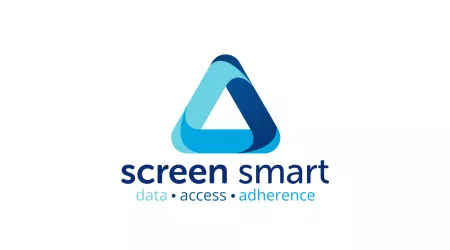Statement: colorectal cancer screening guidance from American College of Physicians confuses issue
The Colorectal Cancer Alliance (Alliance), a national nonprofit committed to ending this disease, strongly disagrees with the colorectal cancer screening guidance issued yesterday by the American College of Physicians (ACP), which suggests people at average risk start getting checked at age 50 — five years later than recommended by other institutions.
In 2021, the United States Preventive Services Task Force (USPSTF), the government-appointed body that sets screening guidelines followed by most insurers, including Medicare, aligned with the evidence — primarily, a doubling in the rate of young-onset colorectal cancer since 1994 — and recommended that colorectal cancer screening begin at age 45. Prior to that, in 2018, the American Cancer Society made a similar recommendation.
By putting forth its guidance, the ACP sends a mixed message to the public about the risks of young-onset colorectal cancer, defined as colorectal cancer in patients younger than age 50. In people younger than 50, colorectal cancer rates have been increasing by 1% to 2% a year since the mid-1990s, according to the American Cancer Society. A 2021 study predicted colorectal cancer will be the leading cause of cancer death in people ages 20 to 49 by 2030.
A statement announcing ACP's guidance lists rare complications that can occur during a colonoscopy, while also suggesting that clinicians not use increasingly popular at-home stool-DNA tests. Colorectal cancer screening through colonoscopy is a routine and safe procedure. Studies estimate the overall risk of complications for routine colonoscopy to be low, about 1.6%. The Alliance advocates for all evidence-based, validated screening methods, including stool-DNA tests. Among their various benefits, stool-DNA tests can improve screening access in underserved communities.
“ACP’s actions are regressive and put lives at unnecessary risk,” said Michael Sapienza, CEO of the Colorectal Cancer Alliance. “We’re finally breaking through the stigma that has long been associated with colorectal cancer, and we’re finally addressing its impact on younger people. Now is not the time to make conflicting recommendations or exaggerate the risk of screening. The greatest risk people face today is not getting checked for colorectal cancer.”
ACP’s recommendation will not influence the Alliance’s message to the general public, and the Alliance will continue to encourage clinicians to follow the screening guidelines set by the USPSTF. All people at average risk should begin getting checked for colorectal cancer at age 45.
Being at average risk for colorectal cancer is more about risk factors that are missing. People at average risk are 45 or older and have:
- No symptoms of colon or rectal cancer like bleeding when you have a bowel movement or persistent belly pain.
- No family members who have been diagnosed with colorectal cancer or a hereditary colon or rectal cancer syndrome like Lynch Syndrome or Familial Adenomatous Polyposis (FAP). This means no siblings, parents, or children have been diagnosed. If a person’s extended family has any of these, it is worth mentioning to your doctor but may not affect a person’s risk.
To get a free personalized screening recommendation, visit quiz.getscreened.org.
About the Colorectal Cancer Alliance
The Colorectal Cancer Alliance empowers a nation of passionate and determined allies to prevent, treat, and overcome colorectal cancer in their lives and communities. We advocate for prevention, magnify support, and accelerate research to end this disease. Founded in 1999 and headquartered in Washington, D.C., the Alliance is the largest national nonprofit dedicated to colorectal cancer, and we exist to end this disease in our lifetime. For more information, visit colorectalcancer.org.
Media Contact
Steven Bushong
sbushong@ccalliance.org
(330) 957-0484
Top resources

National Cancer Prevention Month: Majority View Encouraging Screening as an Act of Love
Americans increasingly view colorectal cancer screening encouragement as an act of love, with new survey data showing rising openness about lifesaving prevention.

Katie Couric Joins the Colorectal Cancer Alliance To ‘LEAD FROM BEHIND’
Katie Couric joins the Colorectal Cancer Alliance and Ryan Reynolds’ Maximum Effort to expand LEAD FROM BEHIND, a star-powered campaign breaking stigma and urging lifesaving colon cancer screening. Colon cancer is the preventable cancer.

20+ Colorectal Cancer Alliance Screen Smart Partners Encourage Secretary Kennedy to Uphold USPSTF Goal to Improve Health
The Colorectal Cancer Alliance and more than 20 Screen Smart partners urge HHS Secretary Robert F. Kennedy Jr. to protect USPSTF’s evidence-based process and no-cost preventive screenings like colorectal cancer screening, which save lives and improve national health.





